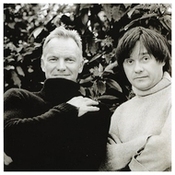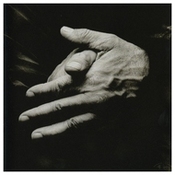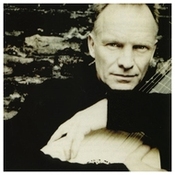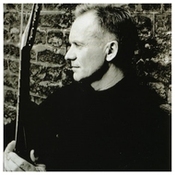
Renaissance in a T-shirt - Sting on tour: His Dowland songs lack intimacy in front of an audience. And where does 'Roxanne' leave you?
You usually know what the audience will be like. Rammstein fans look different than the listeners of a string quartet. But who might be the people who made a CD of depressive songs from Shakespeare's time one of the biggest sales successes in early music and now want to hear them live because Sting sings them? 'Flow My Tears,' 'Come, Heavy Sleep,' 'In Darkness Let Me Dwell'... These are songs for the unhappy in love, the torn, the just-hopped, those in need of consolation. And pop star Sting hasn't hyped them up in his 'Songs from the Labyrinth.' He sings to the lute as usual, if not better – without regard for intonation and ornamentation techniques of the Renaissance, simply and poignantly. Dowland also wrote his songs for amateurs and enthusiasts; they are not virtuosic. And the insecure society of the early 17th century, which was reflected in these songs, is not far from us.
However, the crowd in the Hamburg Musikhalle doesn't show any signs of insecurity. The audience is dominated by the well-earning middle class around 45. Seventy-year-old classical music subscribers are absent, as are Rammstein fans, but Sting is out of the question for either of them anyway. Men in turtleneck sweaters are seen in abundance, but there are also formal jackets and colourful shirts; leather blousons are the out-of-place exception. The women wear skirts and trousers, more dignified than daring. These are mostly people who don't have to recalculate their monthly budget for seats between 50 and 100 euros; the average age is about five years younger than that of the musician they all want to see. But it takes a while until he arrives. At first, there's only plucking. The lutenist is the opening act.
Edin Karamazov isn't playing anything by Dowland, but by Bach, namely the popular (organ) Toccata and Fugue in D minor. This fits John Dowland's 100-year-old musical language like a meatball to sushi, but Karamazov seems to be trying to offer something familiar to the layperson. This becomes even more questionable when he follows it with soapy, decoded sounds like something from a one-world store, playing the glorified artist. However, he really doesn't have the most rewarding role this evening. While on the CD, the voice and accompaniment are experienced as equal and close to one another, in the concert there's only one person everyone's attention is on. Sting is applauded before his first note as others are, at best, after their last. From then on, Karamazov leads a shadowy existence in terms of sound balance, lighting direction—and interplay.
You can't blame Sting for that. He's not vain; he responds to the cheers with irony, and he's serious about his songs. But the comfort of the studio is worlds away from the energy and collective intensity that a concert demands from artists. Sting sings absolutely cleanly, and his voice, raw, colourful, and bright, calm, devoted to the melancholic lines, fits wonderfully. But for a long time, he remains controlled, securing himself on the stool behind his monumental music stand. He and his lutenist seem separated from each other, and only with a delay does the intimacy and vulnerability of the songs come to life. In "Come, Heavy Sleep," things get intimate for the first time – which leads to notable coughing fits in the audience. That's how it is sometimes when everyone has been waiting for emotions and is then surprised by them...
For the polyphonic passages, which are sung by four Stings on the CD, singers from the London choir Stile Antico come on stage. They do it very well – and are toned down so that the blossoming polyphony leaves little more than background harmony. It's not just the 17th century that meets the 21st century, it's also the intimacy of down-to-earth populism that juxtaposes it. However, given the way Sting sings, that can't be his intention. He doesn't force anything in these songs of love and pain; he lets them flow like the tears that flow through the lyrics like gentle rivers. 'Come Again', this very personal evocation of a lost love, is particularly touching because he sings without a soloist, modestly entrusting himself to the song, not overshaping and individualizing it, but leaving it to the listener. With a voice like that, that's possible.
Sting also proves himself to be Dowland's spiritual brother with his own songs: 'Fields of Gold' would have been well-received in this version even in London in 1607. Afterward, the hall roars; a white-bearded senator-type roars for 'Roxanne' from Sting's Police era, and you can tell that in the fit 52-year-old musician, who pulls the designer jacket off his T-shirt at the end, his generation is also celebrating itself. Just don't get older! Marching applause. To this, Sting offers the only appropriate response: John Dowland again with 'Come Again'. Then it falls very quiet. In dealing with loss and transience, the artists of 400 years ago were far ahead of us.
(c) Die Zeit by Volker Hagedorn
Pop star in the role of the submissive student...
Renaissance lute music leads a rather shadowy existence in everyday concert life. But when a pop star like Sting takes up the melon-shaped instrument, it rises to stardom. This is what happened at Hamburg's Laeiszhalle.
Together with lute virtuoso Edin Karamazov, a brilliantly cheerful Sting presented a one-and-a-half-hour program of songs by the English Renaissance composer John Dowland (1563-1626). The rock bard initially let his "lute teacher" Karamazov take the lead. It was fantastic how his hands made the strings chirp and sing, creating an almost orchestral web of tones. After twenty minutes, the brilliant instrumentalist had made the audience forget Sting's previous stage absence. But as soon as the bard stepped onto the podium, the subdued concert atmosphere changed. He was greeted by frenzied cheers and applause. Initial hopes of hearing well-known Police classics emerged. But Sting sat down on a stool, obsequiously like a student, picked up his lute, and an instrumental duet with Karamazov rang out. However, the work clearly demanded the student's full concentration. Most of the time, Sting left the accompaniment of the Dowland songs to the master and concentrated on singing. Bright and throaty, yet reserved with a gentle timbre, he gave the songs, with their lyrics of grief and love, a very special flair. Between the pieces, Sting read passages from Dowland's letters, which recounted his experiences while touring Europe as a lute player.
The Laeiszhalle remained empty until the end of the regular concert. "Police Song." But frenetic applause from the audience demanded five encores and when Sting relented and intoned 'Message In A Bottle' with unfamiliar lute accompaniment, many an older audience member imagined they were standing in the middle of the screaming audience at a Police concert.
(c) Schleswig-Holsteinischer Zeitungsverlag by Karsten Leng
Sting performs ballads by John Dowland at the Laeiszhalle...
EU cross-border artist with lute - The "Police" singer thrilled his sold-out fans with songs from the Renaissance.
What happens when a rock singer interprets a Renaissance composer? When he swaps his electric guitar for a lute? When he switches from popular to classical music? Then what he creates is, above all, authentic. Sting isn't a classically trained singer, nor is he a specialist in early music. He doesn't even want to be. His project "Songs from the Labyrinth" is primarily a hobby. And that alone is appealing.
The 55-year-old "Police" man has immersed himself in the life and work of the English composer John Dowland (1563-1626) and learned to play the lute from the virtuoso Edin Karamazov, with whom he realized his CD experiment. With evident devotion, Sting quoted from Dowland's letters during his sold-out and acclaimed guest performance in the main hall of the Laeiszhalle, interspersed with anecdotes – and sang Dowland's songs while seated, half-hidden behind a huge black music stand. Gentle, straightforward, almost shy.
Of course, he doesn't possess the colour palette or sonic imagination of an Andreas Scholl. His voice sounds breathy, his approach is unpretentious and direct. A somewhat one-dimensional, but honest and intimate exploration, which is probably why it often comes across as so poetic – especially in songs like 'Flow my tears', 'The lowest trees have tops', and 'Come again'. Sensual lyricism is also evident in 'Fine knacks for ladies' and 'Can she excuse my wrongs', where Sting was supported by the London Stile Antico Choir.
Fascinating: Edin Karamazov's exquisite lute artistry: Sometimes he nimbly plucked the strings (for example, at the beginning of Bach's Toccata in D minor), then he seemed to gently caress them, and at times his head almost disappeared behind the fingerboard, as if to emphasize his intimate relationship with his instrument.
Also fascinating was how the audience, which obviously consisted more of Sting fans than early music specialists, listened intently to the Elizabethan ballads and celebrated the musicians for it. The rapturous applause only erupted at the end, when Sting performed a few of his own songs. As an EU cross-border commuter, he naturally played a lute instead of an electric guitar.
(c) Hamburger Abendblatt by Bettina Brinker





